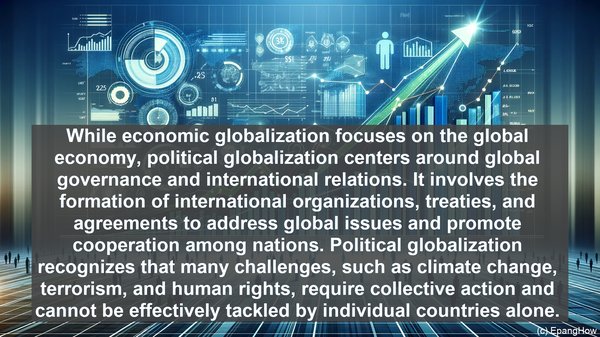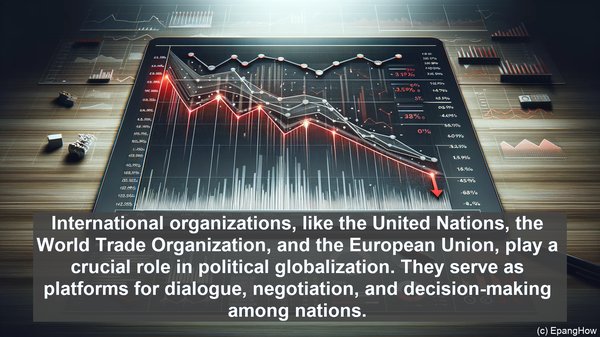Introduction: The Globalized World
Hello everyone! In today’s interconnected world, two terms often come up in discussions about our global society: economic globalization and political globalization. While they may sound similar, they represent different aspects of our interconnectedness. Let’s dive in to understand the nuances!
Economic Globalization: The Global Economy
Economic globalization refers to the increasing integration and interdependence of national economies. It involves the free flow of goods, services, capital, and information across borders. This integration is facilitated by advancements in technology, transportation, and communication. Think of it as the global marketplace, where countries engage in trade, investments, and financial transactions on a massive scale.
Key Aspects of Economic Globalization
Several key aspects define economic globalization. One is the removal of trade barriers, such as tariffs and quotas, to encourage free trade. This allows countries to specialize in producing goods and services they have a comparative advantage in, leading to efficiency and increased productivity. Another aspect is the rise of multinational corporations, which operate in multiple countries, creating global supply chains and employment opportunities. Additionally, economic globalization has led to the emergence of global financial institutions, like the World Bank and the International Monetary Fund, which provide financial support and stability to nations.

Political Globalization: Global Governance
While economic globalization focuses on the global economy, political globalization centers around global governance and international relations. It involves the formation of international organizations, treaties, and agreements to address global issues and promote cooperation among nations. Political globalization recognizes that many challenges, such as climate change, terrorism, and human rights, require collective action and cannot be effectively tackled by individual countries alone.
The Role of International Organizations
International organizations, like the United Nations, the World Trade Organization, and the European Union, play a crucial role in political globalization. They serve as platforms for dialogue, negotiation, and decision-making among nations. These organizations establish norms, rules, and standards that shape global interactions. For example, the Paris Agreement on climate change sets targets for reducing greenhouse gas emissions, with countries coming together to address this pressing issue.
Interconnectedness: Economic and Political Dimensions
While economic and political globalization are distinct, they are deeply interconnected. Changes in the global economy, such as a financial crisis or a trade war, can have significant political ramifications. Similarly, political events, like conflicts or changes in government, can impact the global economy. The COVID-19 pandemic, for instance, not only disrupted supply chains and trade but also required international coordination in terms of public health measures and vaccine distribution.

Implications and Debates
The rise of economic and political globalization has both benefits and challenges. On one hand, it has led to increased prosperity, lifted millions out of poverty, and fostered cultural exchange. On the other hand, it has also contributed to income inequality, job displacement, and cultural homogenization. There are ongoing debates about the role of globalization in shaping national sovereignty, with some arguing that it erodes it, while others emphasize the need for global cooperation in an interconnected world.
